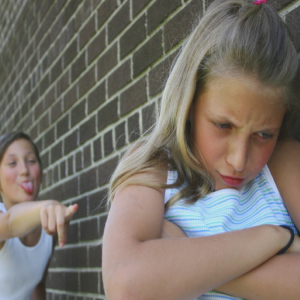

 Peterson Plumbing believes it’s important that our communities understand how bullying affects all of us. While most of the repercussions of intimidation and violence are associated with children, anyone can experience the negative impact of being bullied.
Peterson Plumbing believes it’s important that our communities understand how bullying affects all of us. While most of the repercussions of intimidation and violence are associated with children, anyone can experience the negative impact of being bullied.
Victims have been known to suffer from anxiety, depression, sadness and loss of interest in work, studies, and hobbies and can also lead to suicide. Sufferers have seen negative changes in their health. Bullying needs to stop!
Bullying is defined as any intentional, repeated aggressive behavior directed by a perpetrator against a target in the same age group.
One of the most noteworthy components of bullying is an imbalance of power between the bully and the victim.
Sometimes, the power imbalance is obvious when, for example, a bigger, stronger kid bullies a weaker, smaller kid or when a group of people bullies a single individual. However, sometimes the power imbalance is more difficult to discern because it involves less obvious factors, such as differences in popularity, intelligence, or ability, or knowledge of the information the victim finds embarrassing.
Bullying falls into six categories, some of which are more obvious than others. They include:
Physical bullying involves any attack on a person’s body, including hitting, kicking, tripping, or pushing. It can also extend to inappropriate hand gestures or stealing or breaking a victims’ belongings
One study found that verbal bullying was the most common form of bullying. Boys experienced this type of bullying at a slightly higher rate than girls, and most were bullied by their own friends
involves actions intended to harm a victim’s reputation or relationships. It can include embarrassing the victim in public, spreading rumors, purposely leaving them out of social situations, or ostracizing them from a group.
Cyberbullying is bullying that happens via electronic devices like computers, smart phones, and tablets. It can take place over text messages, social media, apps, or online forums and involves posting or sending harmful content, including messages and photos, and sharing personal information that causes humiliation.
Sexual bullying is online or in-person bullying that involves sexual comments or actions, including sexual jokes and name-calling, crude gestures, spreading sexual rumors, sending sexual photos or videos, and touching or grabbing someone without permissio
Learn how to identify bullying and stand up to it safely. Become an upstander